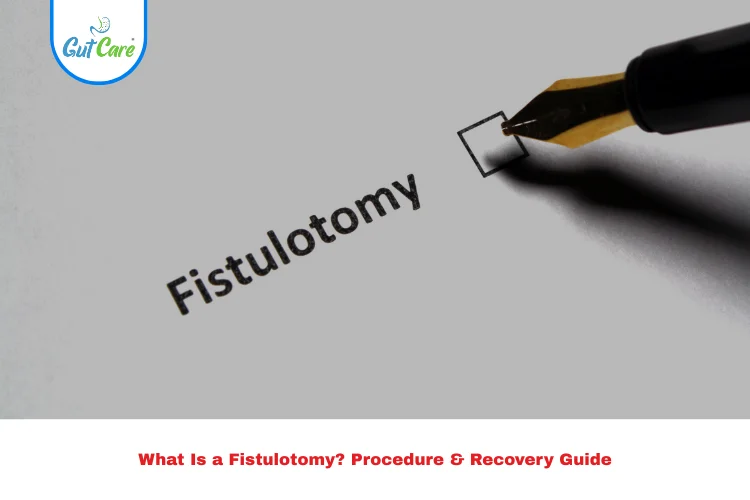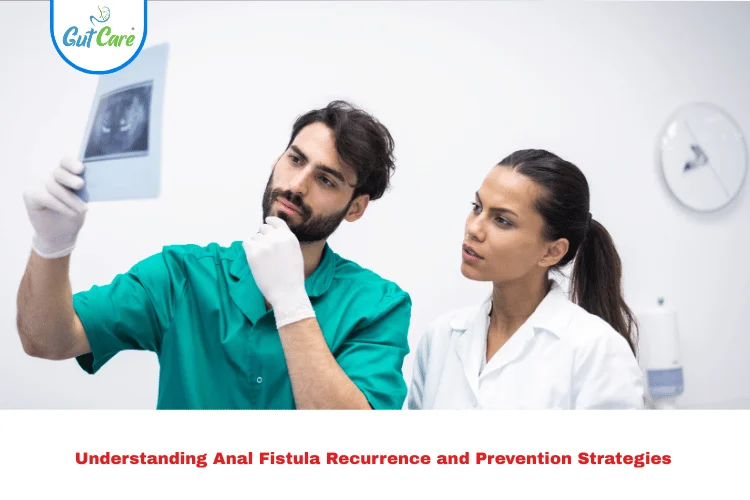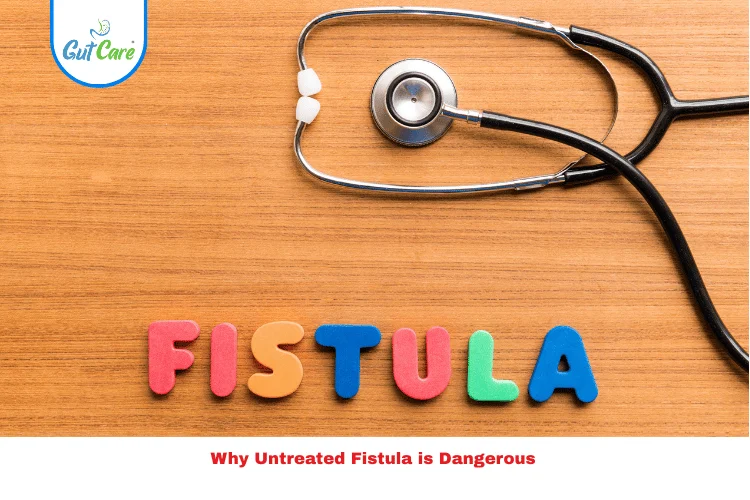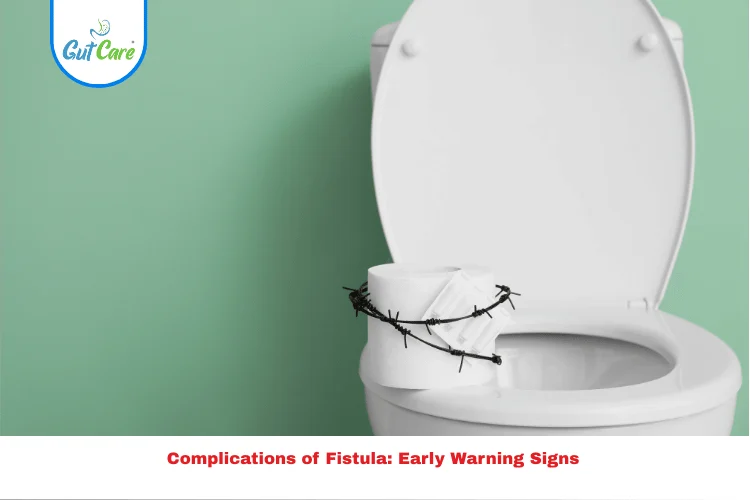If you’ve been diagnosed with an anal fistula, your doctor might recommend a fistulotomy. The word itself sounds intimidating, but the procedure is one of the most effective ways to treat this painful and persistent condition. At Gutcare Clinics in Bangalore, colorectal specialist Dr. Yuvrajsingh Gehlot sees many patients struggling with fistulas and helps them find lasting relief through timely treatment.
This guide will walk you through what a fistulotomy is, why it’s done, what recovery looks like, and when you should see a specialist.
What Exactly Is a Fistulotomy?
A fistulotomy is a surgical procedure used to treat an anal fistula — a small tunnel that develops between the inside of the anus and the skin around it.
Patients often describe their symptoms as:
- Recurring painful swelling near the anus
- Pus or blood discharge
- Constant irritation, itching, or foul-smelling drainage
When these symptoms don’t go away, surgery becomes the most reliable solution. A fistulotomy works by opening the tunnel, cleaning it out, and allowing it to heal naturally from the inside out.
Why Doctors Recommend a Fistulotomy
Anal fistulas don’t usually heal on their own. Left untreated, they can lead to repeated infections and abscesses. Doctors like Dr. Yuvrajsingh Gehlot recommend a fistulotomy when:
- The fistula is simple and doesn’t pass through much of the sphincter muscle
- Other treatments haven’t worked
- The fistula is causing frequent pain or discharge
For most patients, this procedure provides long-term relief and prevents the problem from coming back.
How a Fistulotomy Is Performed
Although every patient’s case is different, here’s what you can generally expect:
- Assessment and planning
The specialist examines the fistula and may use scans to understand its path. - Anesthesia
The procedure is done under general or spinal anesthesia so you won’t feel pain. - Opening the fistula tract
The surgeon carefully cuts open the tunnel and flattens it, leaving it to heal as a shallow wound. - Cleaning and healing
Any infection is cleared out, and the wound is left open so it can heal from the inside.
For most people, the surgery takes less than an hour, and you can usually go home the same day.
Recovery: What Patients Should Know
Healing after a fistulotomy usually takes four to six weeks, but most patients return to light activities within a few days.
Tips for smoother recovery include:
- Sitz baths: Sitting in warm water helps soothe pain and speeds healing.
- Pain relief: Over-the-counter painkillers or doctor-prescribed medication can help.
- Diet: Eating fiber-rich foods and drinking plenty of water prevents constipation.
- Good hygiene: Keeping the area clean reduces infection risk.
Regular follow-ups with your doctor are important to track healing.
Possible Risks
While fistulotomy is considered safe, no surgery is completely risk-free. Rare complications may include:
- Wound infection
- Minor bleeding
- Recurrence of the fistula
- Rarely, difficulty controlling bowel movements if the fistula was complex
Choosing an experienced specialist like Dr. Yuvrajsingh Gehlot at Gutcare Clinics significantly lowers these risks.
Alternatives to Fistulotomy
- Seton placement (using a surgical thread to aid drainage)
- LIFT procedure (ligating the fistula tract)
- Fistulectomy (removing the tract entirely)
- Flap surgery (covering the internal fistula opening with healthy tissue)
Your doctor will decide which approach best suits your case.
Final Thoughts
A fistulotomy may sound daunting, but it’s one of the most effective ways to treat an anal fistula permanently. With the right care, recovery is straightforward, and patients can return to their normal lives within weeks.
If you have persistent anal pain, swelling, or discharge, don’t ignore the symptoms. Consult a trusted specialist like Dr. Yuvrajsingh Gehlot at Gutcare Clinics Bangalore to get an accurate diagnosis and the best treatment plan.
FAQs
1. How successful is a fistulotomy?
Fistulotomy has a success rate of more than 90% for simple fistulas. Complicated cases may need alternative procedures.
2. Is recovery from fistulotomy very painful?
Mild to moderate discomfort is common for a few days, but it improves with sitz baths and prescribed medication.
3. Can a fistula heal without surgery?
No. Once formed, a fistula rarely heals on its own. A procedure like a fistulotomy is usually required.
4. Who performs fistulotomy in Bangalore?
At Gutcare Clinics Bangalore, Dr. Yuvrajsingh Gehlot specializes in treating anal fistulas with advanced surgical techniques.
5. What should I eat after a fistulotomy?
A high-fiber diet with fruits, vegetables, whole grains, and plenty of fluids helps prevent constipation and supports healing.




